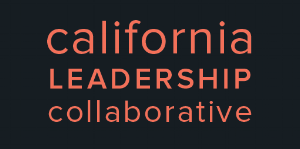PG&E, Business Leaders Discuss How to Get More Women to Run for Public Office
Re-published from PG&E Currents, a publication of news and events from the Pacific Gas and Electric Company
On International Women’s Day, PG&E joined other business leaders and women’s leadership organizations for a call to action: More women are needed in California politics.
Melissa Lavinson, left, interviews Amanda Renteria, former Hillary Clinton political director, during a roundtable discussion about how to encourage more women to run for political office. (Photo by David Kligman.)
Women began to flourish in California public office in the mid-1970s, and that progress persisted through 2010. But despite women holding both U.S. Senate seats in California, women’s political advancements have since stalled, according to the Sacramento-based group California Women Lead.
As of last fall’s election, women only account for 32 percent of U.S. House seats, 22 percent of the State Senate and 21 percent of the State Assembly. As of last year, 25 percent of statewide county supervisors were women while 14 counties had no women serving.
On Wednesday (March 8), PG&E hosted a meeting of the California Leadership Collaborative, a group whose mission is to unite business and political leaders to encourage more women to run for public office.
Geisha Williams, who last week became PG&E’s first female CEO and president, addressed a group that included leaders from Facebook, Lyft and other businesses, as well as women’s leadership organizations.
She said diversity among elected leadership will lead to better public policy outcomes.
“By working together, and finding new paths to new solutions in the way that California is so well known for, we can amplify each other’s efforts,” she told them. “Because as more women get elected to public office, more women get into the C-Suite and the board room, and vice versa. And as more women occupy leadership roles, more will be inspired to pursue them in the first place.”
Encouraging women to run for elected office is not exclusive to one political party, said Wendy Greuel, a former Los Angeles city controller and mayoral candidate in that city, who attended the half-day event.
“This is not a partisan issue,” Greuel said. “This is not about Republicans or Democrats. This is about making sure that women are prepared to run.”
It’s also an issue for all levels of political office, from local to national, said Lydia Beebe of The Lincoln Club of Northern California.
“We want to ensure that those in elected office across the state truly reflect the people they represent, at all levels of government,” Beebe said. “Empowering women to run for those offices starts with engaging them in the opportunity for leadership.”
The event concluded with a roundtable discussion featuring Julie Kane, PG&E senior vice president and chief ethics and compliance officer; Amanda Renteria, former Hillary Clinton political director; and Myesha Jackson, senior policy adviser to California’s Assembly speaker.
Kane said businesses should also do more when it comes to looking for a more diverse hiring pool of candidates.
“There are things we haven’t done yet in this country to make space for women in leadership,” said Kane during the discussion, webcast to PG&E’s women’s employee resource group. “There aren’t enough women in boards. There aren’t enough women CEOs. … There are barriers that still have to fall, so I call on all of us to make that happen.”
When asked to offer their advice for increasing the number of women candidates, Jackson said women should build relationships with each other and show support to one another. In the business world, Kane encouraged women to mentor each other. Others suggested getting involved in political organizations and local boards.
“We really have an inspiration challenge, not just here in California but across the country,” said Jessica Grounds of the California Leadership Collaborative.
The energy company provided initial funding for the California Leadership Collaborative. The organization also receives support from She Should Run, a nonprofit that works to create a culture that inspires women and girls to aspire to public leadership.
“All of us have an opportunity to mobilize, to act and to get involved,” said Laurie Giammona, PG&E senior vice president and chief customer officer. “The only way we are going to continue to create a pathway and lift up other women is to be active and be involved.”
Email David Kligman at David.Kligman@pge.com.

